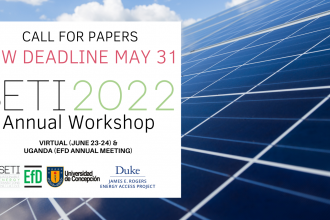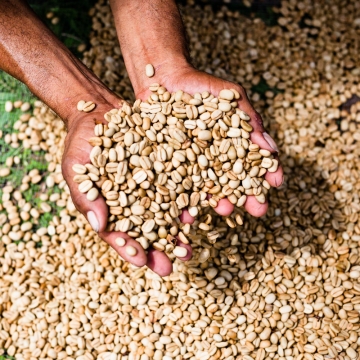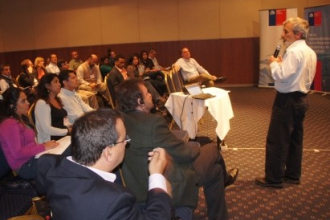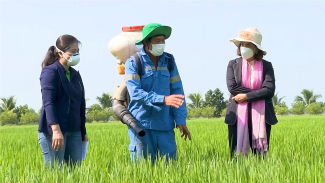
SETI 2022 Call for Papers Annual Workshop of the Sustainable Energy Transitions Initiative (SETI)
June 23 - 24, 2022, 2-day virtual meeting + Uganda as part of the 2022 EfD Annual Meeting(1 day between September 22-26, 2022) Hosted by NENRE-EfD Chile at the University of Concepción and Duke…







